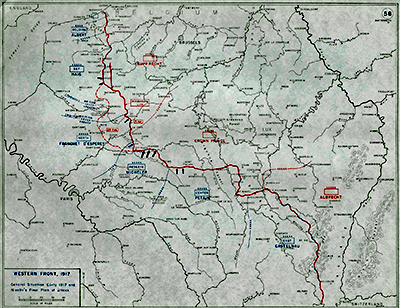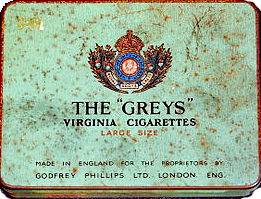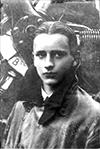First World War Project
Home News - January 1917
 A change of theatre map (right), even if no great change in front lines! This map shows the major formations confronting each other over the Western Front in the run up to April 1917 (click map for enlarged image). Assaults and attrition continued to take their toll on our local men; mostly on the Western Front. The Allied Offensive on the Somme had ended on 18th November without much to show for the awful price paid. There followed "the Somme winter" from October 1916 to February 1917. Both sides were exhausted and depleted by the Battle of the Somme; both sides had to live in the partially destroyed trenches in the bitter cold and (when thawed) knee-deep mud. What followed was a period of relative quiet but for a few limited actions. The suffering would have been known about at home simply through the return of soldiers on leave.
A change of theatre map (right), even if no great change in front lines! This map shows the major formations confronting each other over the Western Front in the run up to April 1917 (click map for enlarged image). Assaults and attrition continued to take their toll on our local men; mostly on the Western Front. The Allied Offensive on the Somme had ended on 18th November without much to show for the awful price paid. There followed "the Somme winter" from October 1916 to February 1917. Both sides were exhausted and depleted by the Battle of the Somme; both sides had to live in the partially destroyed trenches in the bitter cold and (when thawed) knee-deep mud. What followed was a period of relative quiet but for a few limited actions. The suffering would have been known about at home simply through the return of soldiers on leave.
The French fight to defend Verdun through a long and bloody siege was successful and ended on 18th December.
In the absence of large engagements on the Western Front in Europe, the focus fell elsewhere. At sea, one of the largest Russian Battleships, "Peresvet", was sunk by a mine off the Egyptian coast. For the British, HMS "Cornwallis" was sunk by a German submarine and the Japanese battle cruiser "Tsukuba" sank at anchor following a catastrophic internal explosion. On 23rd January, the Harwich Flotilla saw action with the German 6th torpedo boat flotilla in the North Sea with the loss of HMS "Simoom". On the 25th, the Suffolk Coast of England (Wangford and Southwold) was shelled by German destroyers. On the last day (31st January), the Germans announced that on 1st February they would adopt "unrestricted" submarine warfare, including against hospital ships.
Political sands shifted. General Sir Douglas Haig promoted Field-Marshal on 3rd January 1917. Two days later, the Inter-Allied Conference assembled in Rome to discuss co-operation, and the questions of Macedonia, Greece, the command of the Salonika expedition, and convene a shipping conference that continued through the 6th and 7th of January. On 6th January, the "Inter-Allied Chartering Committee" was established for chartering shipping.
Fighting in the air was marked by the last German airship raid on Paris. However, raids continued on England in January - East Coast and industrial districts Midlands gave the furthest penetration inland to date, causing 183 mostly civilian casualties.
Statistics
This time we have transcribed the position of the emergent Royal Air Force.
1st October, 1916, to 28th February, 1917
Between 29th September, 1916, and 1st March, 1917, 2,844 aeroplanes were taken into service, and 1,425 were struck off. On 1st March, 1917, the number of military aeroplanes in existence was 1,614 abroad and 2,799 at home. The approximate percentage of wastage from 29th September, 1916, to 1st March, 1917, was 7.82 per cent. per month.
By 1st March, 11,013 aeroplanes were in progress, of which 7,782 had been delivered. On the same date, orders for 20,078 aeroplane engines were in progress, of which 6,505 had been delivered.
The anticipated deliveries were:-
| Month | Aeroplanes | Engines |
| October, 1916 | 629 | 372 |
| November, 1916 | 636 | 348 |
| December, 1916 | 659 | 437 |
| January, 1917 | 625 | 375 |
| February, 1917 | 711 | 451 |
| March, 1917 | 731 | 701 |
Food production priorities
| Whitstable Times and Herne Bay Herald of 6th January 1917 |
| The cultivation of the vacant land in the district of Whitstable ought to prove a successful undertaking judging by the interest that is being evinced in the matter by Mr. Carson's committee. All arrangements are well in hand and there will be allotments available for everyone. Personally we shall not want an allotment because we started our cabbage patch some weeks before the national movement was set on foot and although it is a very small patch we hope to do something in the way of increasing the supply of potatoes in the district. |
Supply of Seed Potatoes
Lynsted Parish Council Minutes of 15th January 1917: "A letter was read K.C.C. re 'Supply of Seed Potatoes' & no action was taken. Mr Smith promised to supply seed potatoes to the parishioners at 12/= per cwt. The K.C.C. quote no price & gave no assurance that they would be able to supply such potatoes. Mr Smith's offer only to be open till Feb 20"
New Flying Officer and a Prisoner of War - LOCAL WAR ITEMS.
| Faversham and North East Kent News of 18th January 1917 |
[Society Note: Valentine Austen later became a prisoner of war and went on to lived a long life - see the "Home Front" page for August 1917.] "Private John Andrews, The Buffs, a Newnham man who is a prisoner of war writes as follows, in acknowledging one of the parcels that are periodically sent to him:- "Dear Madam. It is with many thanks to you and kind friends I write these few lines to say that I have received another of your lovely parcels, also shirts which I can assure you are very useful here as it has got very cold and we expect to stay here sometime yet, also I have received the cigarettes safely and which are very comforting and we appreciate your kindness more than I can express here. This letter leaves me well, thank God, despite the circumstances but we are longing for that day to come when we can return to our friends again but we keep smiling and hope for the best. Hoping this will find you and all kind friends at Newnham in the best of health, please give them my thanks and appreciation of their kindness for me. I remain, Yours very thankfully, J. Andrews. |
Christmas gifts for the Front
| East Kent Gazette of 20th January 1917 |
 GREENSTREET. SOLDIERS AND THEIR CIGARETTES. – From amongst another batch of letters and postcards received by Mr H.A. Peasnall, The Pharmacy, Greenstreet, who had charge of the fund for providing cigarettes to local soldiers, we take the following:- Lieutenant A.C. Evans wrote:- "Very many thanks for the 'Greys'; quite a pleasant surprise to be remembered by the people of Lynsted and Teynham. I might mention that these cigarettes arrived in first-class condition, and were appreciated by other members of the mess. Needless to say I would rather have been at home for Christmas, yet on the other hand, we all has an excellent time here, perhaps owing to our previous energy being spent in building a cinema. The whole company, 300 strong, sat down to dinner, the menu being roast beef turkey, Christmas pudding, dessert, beer, and lemonade, after which the concert party, ten in all, gave their pantomime. This was very amusing, more especially being our own men. Really it is surprising what talent one finds out of 300 men. Had I not actually seen the result with my own eyes I would certainly have though it impossible. We have our own scenery, footlights, side lime lights; in fact, everything, and only three miles behind the firing line; but very seldom are disturbed. Lately the weather has been very changeable, one day mild, and the next just about as cold and wet as it is possible to make it. Not a word about the mud. Really it is too awful for words, and in time is apt to get on one's nerves. However, this job certainly looks as though it will soon be over, so never grouse." GREENSTREET. SOLDIERS AND THEIR CIGARETTES. – From amongst another batch of letters and postcards received by Mr H.A. Peasnall, The Pharmacy, Greenstreet, who had charge of the fund for providing cigarettes to local soldiers, we take the following:- Lieutenant A.C. Evans wrote:- "Very many thanks for the 'Greys'; quite a pleasant surprise to be remembered by the people of Lynsted and Teynham. I might mention that these cigarettes arrived in first-class condition, and were appreciated by other members of the mess. Needless to say I would rather have been at home for Christmas, yet on the other hand, we all has an excellent time here, perhaps owing to our previous energy being spent in building a cinema. The whole company, 300 strong, sat down to dinner, the menu being roast beef turkey, Christmas pudding, dessert, beer, and lemonade, after which the concert party, ten in all, gave their pantomime. This was very amusing, more especially being our own men. Really it is surprising what talent one finds out of 300 men. Had I not actually seen the result with my own eyes I would certainly have though it impossible. We have our own scenery, footlights, side lime lights; in fact, everything, and only three miles behind the firing line; but very seldom are disturbed. Lately the weather has been very changeable, one day mild, and the next just about as cold and wet as it is possible to make it. Not a word about the mud. Really it is too awful for words, and in time is apt to get on one's nerves. However, this job certainly looks as though it will soon be over, so never grouse.""Once more I would like to thank you for the kind present. It shows that we, who are fighting our country's battles, are not entirely forgotten by those who remain at home for our return. As a resident of Teynham, I would thank you if you would kindly show this to the people of Teynham and Lynsted."- (R. Shufflebotham, H.M.S. Agincourt). "Your most welcome gift of cigarettes was received by me safely yesterday (4th Instant). It is a gift that is always welcomed by us out here." (F.T. Baker). "Many thanks for the cigarettes, which I received quiet safely. It is very kind of you to think of us boys at Christmas time, and send these presents, which we appreciate." (Corporal W.F. Everard, Salonika). |
† - Fifty Second Loss in the Kingsdown with Creekside Benefice - 23rd January 1917.
Private, William Thomas MANN (of Newnham), Killed in Action aged 19 years |

 Mr Val Austen, son of Mr. and Mrs. George Austen, of Nichol Farm, Teynham, and grandson of the late Mr. Thomas Austen, of School Farm, Faversham, has been appointed a Flight Officer in the Royal Naval Air Service. He obtained his pilot's certificate last August, at the Beatty School of Flying, Hendon. This young aviator was 18 this week."
Mr Val Austen, son of Mr. and Mrs. George Austen, of Nichol Farm, Teynham, and grandson of the late Mr. Thomas Austen, of School Farm, Faversham, has been appointed a Flight Officer in the Royal Naval Air Service. He obtained his pilot's certificate last August, at the Beatty School of Flying, Hendon. This young aviator was 18 this week." World War 1 Pages
World War 1 Pages